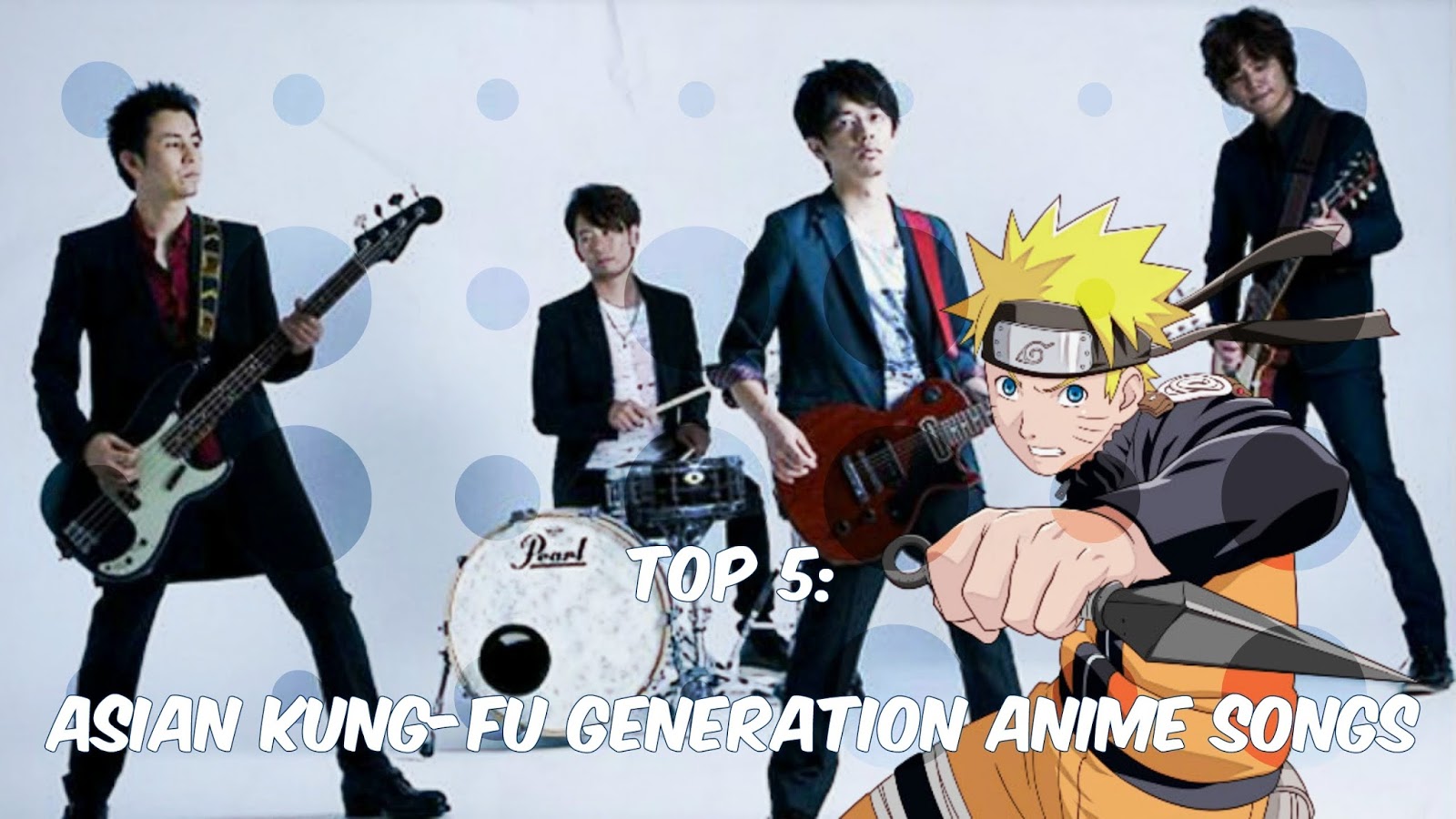

Genres: Power Pop, J-Rock, Alternative Rock. However the fourth album, World World World, hit the stores in early spring of 2008, and the song "After Dark" (not the Tito & Tarantula cover) made it to the opening credits of another wildly popular fantasy animé series, Bleach. Asian Kung-Fu Generation discography and songs: Music profile for Asian Kung-Fu Generation, formed 1996. The "Ajikan" (as the fans came to call them) finally decided to take it easy, lying low for most of the 2007. "Worlds Apart" off Fan Club finally gave the band their first number one single, and after that, a tour and Nano-Mugen Festival 2, this time featuring a dozen bands. 2006 saw them back in the studio recording their third LP, Fan Club, as well as preparing Feedback File, a collection of B-sides and live tracks. Discografa completa de Asian Kung-Fu Generation Full discography Asian Kung-Fu Generation. AKFG spent the next year touring the country (the Re:Re Tour was sold out) and even holding their own Nano-Mugen Festival ("Nano-Infinity Festival"), which featured eight bands in the same vein. Web descarga/download discografias de MEGA, Rock, Metal, Gothic.
#Asian kungfu generation full discography download series#
Its sales reached 600,000 copies, boosted by the fact that two tracks were featured in the credits of the highly popular animé series Fullmetal Alchemist ("Rewrite") and Naruto ("Haruka Kanata"). The band wasted no time and released a second full album Sol-fa (2004) that topped the charts for two weeks. With the ground paved by two successful singles, "Mirai No Kakera" and "Kimi To Lu Hana," it sold 250,000 copies. This was followed by the band's first LP, Kimi Tsunagi Five M (2003). Their first attempt in that direction, "Kona Yuki" off I'm Standing Here, got picked by radio, and their first Japanese-only EP, Houkai Amplifier ("Destroy Amplifier," 2003) turned out to be their breakthrough: it got rave reviews and scored in the Top 40 of the indie section of the Oricon charts. However, in the beginning the band spent several years playing local gigs and making small-label releases, known in Japan simply as "indies." The three first EPs, recorded during the course of 2000-2001 - The Time Past and I Could Not See You Again, I'm Standing Here, and a split with Caramel Man - had lyrics sung in English and broke no new ground for the band, but the experience allowed Asian Kung-Fu Generation to mature and realize they should aim for domestic listener.

Soon they were joined by drummer Ijichi Kiyoshi, and this lineup proved to be stable, lasting over the course of three albums and while gearing up to release their fourth in spring 2008, not counting the many singles - important releases in Japan, where CD prices are among the highest in the world, increasing the demand for cheaper records. It was the first and, to date, the only major project for three of its members - Masafumi Gotou (lead vocals and guitar), Takahiro Yamada (bass and vocals) and Kensuke Kita (guitar and vocals). Gotoh is usually the only one who sings, although Kita was the main vocalist for the song "Uso to Wonderland".Asian Kung-Fu Generation Idioma disponible: inglésĪsian Kung-Fu Generation are one of the most successful indie rock bands of Japan ("indie" standing for the genre, not the recording label), with their Weezer/punk tinged sound enjoying a popularity that even Weezer themselves hardly ever had on their side of the Pacific.ĪKFG began as a college band back in 1996 in a private university in Yokohama. Asian Kung-Fu Generation has four members: Gotou Masafumi (guitar, main vocalist), Kita Kensuke (background vocal as needed, guitar), Yamada Takahiro (background vocal as needed, bass), and Ijichi Kiyoshi (drummer). They performe emotional/love songs in an aggressive, hardcore/punk rock style while giving the songs a bit of angst along with the emotion. ASIAN KUNG-FU GENERATION (アジアン・カンフー・ジェネレーション) is a Japanese rock band.


 0 kommentar(er)
0 kommentar(er)
